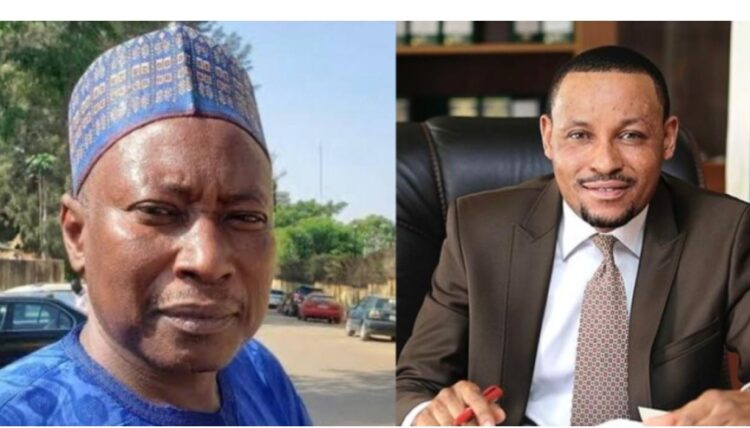Mr Danladi Umar has continued to act as chairman of the Code of Conduct Tribunal (CCT) despite a subsisting order from the Nigerian Senate ordering his removal.
Recall in November, the Senate removed Danladi Umar, over alleged gross misconduct. This decision was made under Section 157(1) of the Constitution of the Federal Republic of Nigeria (1999, as amended), which empowers the Senate to remove key public officials following due process.
The sacking followed a closed-door session lasting over one and a half hours.
Upon resumption of plenary, the Senate announced that more than 84 lawmakers supported the decision.
However, CCT officials who spoke to Daily Trust claimed the embattled chairman, Danladi Umar and the newly appointed chairman, Mainasara Kogo, are laying claim to its chairmanship.
It was learnt that the due had officially visited and held discussions with tribunal staff without any clear directive on who is in charge.
President Bola Tinubu had on July 13 appointed Kogo as the new chairman of CCT the same day he announced Omolola Oloworaran as the Director-General of the National Pension Commission (PenCom).
Although the staff complained about the lull in the work of the tribunal since the controversy over Umar’s removal began, it was observed that corruption cases involving public servants are still being taken with several charges listed on the course list either for trial or arraignment.
However, senior staff of the tribunal, who spoke on the condition of anonymity, told Daily Trust that they are confused about who to work with as both men have spoken with them and they are only civil servants who obey instructions.
“We are civil servants and we believe we can work with anyone that comes,” a staff said.
“We have not seen any letter to the effect of these changes. We believe there is a procedure for the removal and appointment of a new chairman of the CCT.
“We know that the president and the two arms of government have made pronouncements but we don’t know if invisible hands are working on these but we know there is a process,” he added.
One of the officials said the process is for the appointee to go through the screening by the Federal Judicial Service Commission (FJSC), who recommends to the National Judicial Council (NJC) and then to the President, who approves and forwards to the Senate for confirmation.
The senior official said there has been a pile of unattended files arising from a lack of clarity on the chairmanship of the tribunal.
“He came today and left and the entire judiciary is now on holiday so we have taken the liberty to adjourn all the outstanding cases to January,” the witness said.
However, a former staff of the tribunal, who pleaded anonymity, criticised Umar for visiting the office after his removal.
“Why is he still coming to work seeking to sign some documents and approve payments to contractors?”
He said Umar’s visits were illegal as he was no longer the chairman of the commission.
After the presidential announcement removing Umar, both the Senate and the House of Representatives in separate plenaries on November 20 and 26, also endorsed his removal as CCT chairman on allegations of misconduct and corruption.
Both resolutions were hinged on Section 17 (3) Part 1, Fifth Schedule of the Nigerian Constitution and Section 22 (3) of the Code of Conduct Bureau and Tribunal Act 2004 for the decision.
The section provides that “A person holding the office of chairman or member of the code of conduct tribunal shall not be removed from his office or appointment by the president except upon an address supported by 2/3rd majority of each house of the national assembly praying that he be so removed for inability to discharge the functions of the office in question (whether arising from infirmity of mind or body) or for misconduct or for contravention of this code.”
The legal dispute over Umar’s tenure is being tested in a suit before a Federal High Court in Abuja by the Community Rescue Initiative, Toro Concerned Citizens and Relief Foundation, who are contending that by the provisions of sections 1(1) and (3), 6(6), 153 (1) (e) & (i) of the 1999 Constitution of the Federal Republic of Nigeria (as amended) as well as Paragraph (3)(a) (vii) and (b) of the Third—Schedule thereof, the purported concurrence of both Senate and the House of Representatives was null, void, unconstitutional and of no effect whatsoever.
